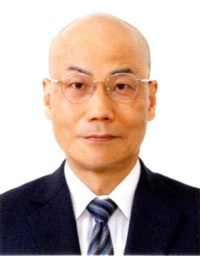
髙山 一三
あすなろ国際教養研究所 代表
専門分野:国際取引法、英米法、憲法、武道
大阪府東大阪市生まれ。1983年東京大学法学部卒業。1988年から1989年にかけて米国デューク大学ロースクール修士課程に留学、法学修士(LLM)。米国ニューヨーク州弁護士(1990年~)、外国法事務弁護士(1997年~2019年)、剣道錬士六段、杖道六段
川崎製鉄株式会社(1983年~1991年)、White & Case 法律事務所(1991年~2007年、アソシエイト勤務を経て2001年パートナー昇格)、日本ベクトン・ディッキンソン株式会社(2007年~2014年、取締役法務部長)、大江橋法律事務所(2015年~2017年、外国法事務弁護士)、関西外国語大学(2017年~2020年、外国語学部教授)を経て、2020年9月より現職。
法律実務家時代には、JR東海による台湾高速鉄道プロジェクトへの技術援助、サウジ国営石油公社による昭和シェル石油株の取得、米General Motor による日本の自動車メーカー株の売却等の、大規模国際取引の法務全般をリード・カウンセルとして指揮。
主として米国やヨーロッパにおいて法的紛争に巻き込まれた日系企業の判例分析を通じて、法務的な観点からだけではなく、ビジネス面における国際関係の諸問題について研究対象としてきた。また、大学教員となって以降は、比較法的観点から、日本国憲法、アメリカ合衆国憲法及びイギリス憲法の判例研究を通じて、特に人権保障の分野について憲法及び裁判制度の意義の探求を研究対象に加えている。
専門である国際取引法、英米法、憲法等の法学に加えて、趣味の剣道及び杖道を通じて、日本の武道の歴史と実践を学ぶ授業を海外からの留学生向けに展開することを当時の勤務校である関西外国語大学に提案のうえ、2018年の秋学期から4学期間にわたり実施し、学内外に大きな反響を呼んだ。
所属学会:国際取引法学会、日本武道学会
主要業績: インドへの直接投資及び技術のライセンス供与に関する留意点(2007年、『国際商事法務』第35巻第2号)、米国ヘルスケア業界における情報開示(いわゆるサンシャイン法)について(2016年、『国際商事法務』第44巻第7号)、米国環境法上の金融機関のレンダーズ・ライアビリティに関する判例等の動向(1995年、『月刊 国際法務戦略』第4巻第2号)、日本の金融機関の死命を制する「格付け」とは何か(1998年、『月刊 国際法務戦略』第7巻第2号〜第7号)、米国雇用関係法概観-歴史的背景と最新の傾向(1998年、『海外駐在スペシャル版 米国雇用マニュアル』[改訂版])、日本版金融ビッグバンへの中間通知表-国際金融業界からの提言(1998年、『日本経済研究センター会報』No.809)、WTO加盟後の中国市場開放と貿易摩擦-米中の認識と対応、日本企業の対応策(2004年、『海外投融資』第13巻第6号)、米国の紛争鉱物規制と企業の社会的責任(2015年、『大江橋法律事務所ニュースレター』第27号)、海外留学生向け日本武道講義(剣道及び杖道)の実践報告(2019年、『関西武道学研究』第28巻第1号)
Ichizo Takayama
Representative, Asunaro Research Office for International Liberal Studies
Areas of expertise: International trade law, Anglo-American law, constitutional law, and martial arts
Born in Higashi-Osaka, Osaka, Japan, he graduated from the University of Tokyo with a degree in law in 1983. Master of Laws (LLM) from Duke University Law School, USA. Attorney-at-law admitted in the State of New York (1990-present), Gaikokuho Jimubengoshi (Registered Foreign Solicitor 1997-2019), Kendo Renshi 6th-dan & Jodo 6th-dan.
Kawasaki Steel Corporation (1983-1991); White & Case LLP (1991~2007, promoted to partner in 2001), Japan Becton Dickinson (2007-2014, Member of the Board and General Counsel), Oh-Ebashi LPC & Partners (2015-2017, Gaikokuho Jimubengoshi), Kansai Gaidai University (2017-2020, Professor, Faculty of Foreign Studies), and has been in his current position since September 2020.
During his time as a law practitioner, he was involved, as lead counsel, in various large-scale international transactions including technical assistance to the Taiwan High-Speed Railway project by JR Tokai, the Saudi Arabian National Oil's acquisition of shares in Showa Shell Sekiyu, U.S. General Motor's divestiture of shares in Japanese automobile companies.
Through analyzing case laws involving legal disputes that Japanese companies encountered primarily in the U.S. and Europe, his research has focused on the issues of international business relations, not only from legal perspectives but from business perspectives. Since becoming a university faculty member, he has also been conducting researches on constitutional laws, including Japanese, U.S and British Constitutions from the comparative law perspectives, exploring the significance of the constitutional and judicial system through the study of case laws, particularly in the area of human rights protection.
In addition to his expertise in the legal field including international trade law, Anglo-American law, constitutional law, etc., starting in the fall semester of 2018, he provided courses at Kansai Gaidai University for international students to learn the history and practice of Japanese martial arts based on his personal hobby of Kendo and Jodo. The course received a great deal of publicity both inside and outside the university.
Affiliations: The Japanese Association of International Business Law, The Japanese Academy of Budo
Major Accomplishments: Notes on Direct Investment and Technology Licensing in India (2007, International Business Law Journal, Vol. 35, No. 2), Information Disclosure in the U.S. Healthcare Industry (the so-called Sunshine Act) (2016, International Business Law Journal, Vol. 44, No. 7), Recent Trends in Court Cases, Etc. on Lenders' Liability of Financial Institutions under U.S. Environmental Law (1995, Monthly International Legal Strategy, Vol. 4, No. 2), What is the "Rating" that Controls the Fate of Japanese Financial Institutions? (1998, Monthly International Legal Strategy, Vol. 7, Nos. 2-7), U.S. Employment Relations Law Review - Historical Background and Current Trends (1998, The U.S. Employment Manual for Foreign Expatriates, Special Edition [Revised]), and the Interim Report to the Japanese Financial Big Bang - Recommendations from the International Finance Industry (1998, The Japan Center for Economic Research Journal, No. 809), China's Market Opening and Trade Friction after China's Accession to the WTO: Perceptions and Responses of the U.S. and China, Japanese Firms' Measures (2004, Foreign Investment and Finance, Vol. 13, No. 6), U.S. Regulations on Conflict Minerals and Corporate Social Responsibility (2015, Oh-Ebashi Law Office Newsletter, No. 27), A Practical Teaching Report of Japanese Martial Arts Course (Kendo and Jodo) for International Students (2019, Kansai Research Journal of Budo, Vol. 28, No. 1)